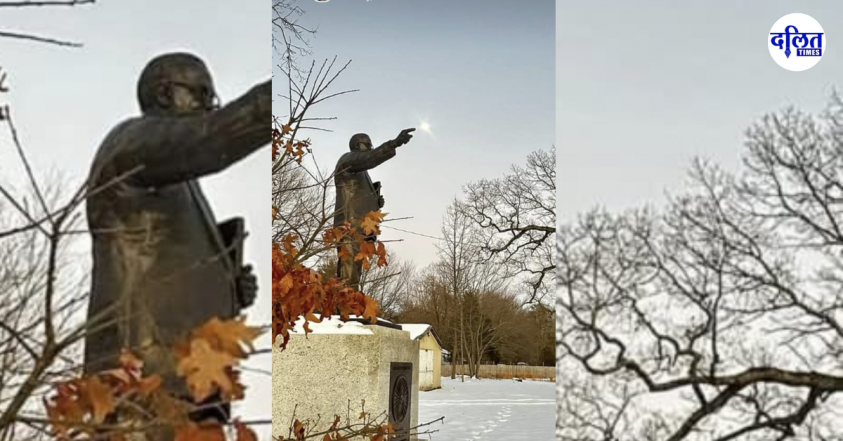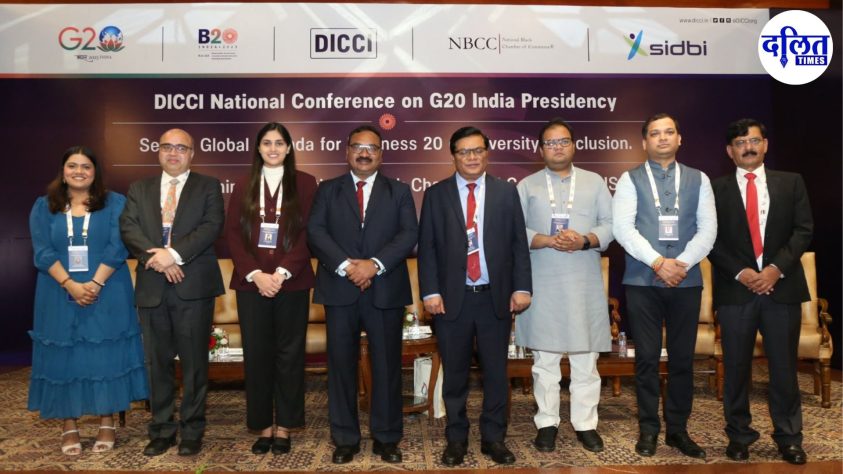April 14 is no longer just Ambedkar Jayanti. It is Ambedkar Day in the world’s empire. But the real empire we must build is one where no one is judged for their birth. Where caste crumbles. Where dignity is not a privilege, but a birthright.
From the United Nations to Times Square, Manhattan reverberated with the politics of memory. Inside the UN, the Indian tricolour flew beside the Buddhist flag. Ambedkarite Buddhists, diplomats, and Dalit activists stood together—not as subjects of charity, but as carriers of revolution.
And this year, for the first time, the United Nations officially acknowledged the global contribution of Dr. B.R. Ambedkar in the pursuit of human rights, equality, and social justice. In a symbolic and historic move, the UN Human Rights Council recognised Ambedkar’s work as foundational to international anti-discrimination frameworks. His writings were cited in a UNDP panel on “Eradicating Social Hierarchies: Global South Perspectives.”
Also Read : Burnt Bodies, Silent Systems: The Caste War in Prayagraj that India Won’t Name
The Office of the High Commissioner for Human Rights (OHCHR) released a commemorative statement that hailed Ambedkar as “one of the most significant 20th-century thinkers on social justice and inclusive democracy.” The UN’s Department of Global Communications included a digital exhibit titled Ambedkar and the Fight Against Discrimination on its official website, amplifying his legacy in connection with other global icons of resistance like Nelson Mandela, Rosa Parks, and Malcolm X.
UN Special Rapporteur on Minority Issues, Dr. Fernand de Varennes, referenced Ambedkar in his annual address, stating, “The caste system is one of the oldest and most persistent forms of social exclusion in the world. It is time we recognise Dr. Ambedkar’s vision not only as India’s inheritance but as humanity’s roadmap.”
April 14, 2025. New York City—the heart of global capitalism did something it rarely does. It paused. Not for profit, but for principle. And it stood in respect of a Dalit scholar, a revolutionary genius: Babasaheb Dr. B.R. Ambedkar.
Also Read : Dr. B.R. Ambedkar and the Reserve Bank of India: The Forgotten Intellectual Architect
Under a spring sky, on land stolen from Indigenous peoples and built by enslaved hands, the world’s wealthiest city did something revolutionary it honoured a man, branded “untouchable” by Brahminical tyranny, who rose to rewrite the destinies of millions. Dr. Ambedkar, the son of oppressed India, became the face of global justice.
New York City officially declared April 14 as Dr. B.R. Ambedkar Day. This wasn’t symbolism. This was memory becoming resistance. Mayor Eric Adams’ proclamation—delivered through Deputy Commissioner Dilip Chauhan recognised Ambedkar not just as a constitution maker, but as an economist, jurist, and global icon of liberation. “Educate, Agitate, Organize,” the mayor echoed, as if invoking a spell long cast by Babasaheb in the hearts of the oppressed. It was a declaration soaked in struggle, not ceremony.
In the same city where Dr. Ambedkar earned his PhD from Columbia University in 1927 welcomed in American academia and his memory now waves through the skyline like a blue flag of defiance.
Also Read : Dalit Girl Forced to Write Exam Outside Classroom During Her Period
Deputy Commissioner Chauhan read the proclamation aloud. In that moment, Babasaheb did not belong to India alone he belonged to every land that understands pain, every people denied dignity. The city that birthed the Black Panthers and remembered Stonewall had now embraced the architect of India’s social revolution.
A procession of resistance marched through Manhattan’s corporate core. Blue flags rose above grey buildings. Drums beat against centuries of silence. Dalit youth honored him with “Jai Bhim!” across a land that once enslaved Africans but now bowed to an emancipator from India. “Who is Ambedkar?” some asked. The answer came: “He is the fire that burns caste. The mind that challenged Empire.”
Columbia University, his intellectual home, held a seminar titled “Ambedkar Now: Casteless Futures, Global Possibilities.” Scholars from Dalit-Bahujan, Black, and Indigenous communities stood not in solidarity—but in shared struggle.
In Queens, where working class immigrants survive sky that high rents and racial profiling, a cultural programme lit lamps of memory. Songs in Marathi, speeches in Tamil, the Panchasheel recited in unison. This was not culture. This was counter-culture. This was people reclaiming their histories from textbooks that erased them.
Deelip Mhaske of the Foundation for Human Horizon said, “This is not symbolic. It’s moral.” And he was right. In a city where Eric Garner was choked, where George Floyd’s name echoes in protests, honouring Ambedkar is not a gesture—it’s a confrontation with the global nexus of caste, race, and class.
Also Read : Stripped of Dignity: Another Dalit Youth Brutalized in Chhattisgarh’s Sakti District
But let us not be lulled. While New York raises Ambedkar, Indian universities erase him. His radical writings are censored. His followers harassed. Ambedkarite students are surveilled, denied fellowships, and pushed to the margins. Dalit activists are jailed. Ministers who quote Ambedkar in the UN silence dissent at home.
Babasaheb is not anybodies property. Not the State’s. Not the Savarnas’. Not the diplomats’ who wear blue for a day but implement Brahminism eveywhare. He belongs to us the protestors, the Ambedkarite mothers, the barefoot girls walking miles to schools, the queer Dalits banned from temples and textbooks.
Babasaheb walks from Mahad to Manhattan, not for validation, but to remind the world that the war on dignity is not over. His is not a legacy of garlands—it is a legacy of confrontation. Let us radicalise this moment. Let us not allow it to be sterilised by photo and diplomatic hashtags. Let it become fire in our feet, thunder in Dalit mouth.
(Bindu Ammini, Advocate, Supreme Court of India | Dalit Feminist | Writer | Legal Advisor, Dalit Times)



